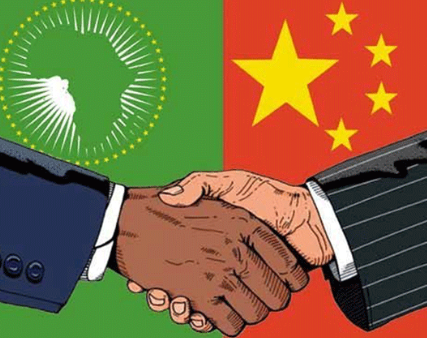CURRENT AFFAIRS UNIT, RADIO KWARA, ILORIN
PROGRAMME: NEWS COMMENTARY
DATE OF BROADCAST: 25/1/89 AT 1810 HOURS
WRITER: LANRE KAWU
The decision by Moussa Traore, the Malian President, and current chairman of the Organisation of African Unity (OAU) to visit the Peoples Republic of China, in search of clearer explanation of recent Chinese actions, regarding African students, further underline the depth of strain, in current Sino-African relations. The present problem emerged a few weeks ago, as a result of the fracas between African students and their Chinese counterparts at a university party, in the Chinese city of Nanking. The incident resulted in pitched battles between the opposing factions, and subsequent intervention by the police.
Chinese students were reported to have demonstrated on the streets and called for punishments for the African students. The latest outbreak follows in the wake of previous ones in 1979, 1983, 1984 and 1987. It is the intensity of the latest row that has led to the present strained relationships.African students, who have collectively decided to leave China enmass, accused the Chinese of racism, feel their safety could no longer be guaranteed in China and also accused African diplomats of making efforts to keep them in China, against their wish.
The whole developments of the past few weeks have certainly been embarrassing for the Chinese government, which for many years consistently advocated the unity of the Third World countries. For the African governments, it certainly was also an embarrassment, to see that the Chinese government did not seem willing to resolve the complications that arose in Nanking, as quickly or as equitably, as it possibly should. The whole development added newer weapons to the arsenals of the circles in the Western world, and Africa, that had always felt unhappy about positive trends in Sino-African relationships.
The triumph of the Chinese Revolution of 1st October, 1949, was one of the most significant developments in post-War history. The Chinese people, led by the Communist Party and Mao Tse Tung, put an end to the semi-colonial, semi-feudal status of this heroic, Asian country. The building of a new order commenced. China that used to be the laughing stock of the world, that was forced to consume opium by the big Western firms, and suffered illiteracy, poverty and prostitution, made remarkable advances in overturning of the age-old history of their nation. China entered 20th Century history, as an independent power.
The Chinese Revolution inspired peoples in Asia and Africa because, unlike previous socialist revolutions, in the Soviet Union and the Peoples Democracies of Eastern Europe, the Chinese had relied heavily on the peasantry for triumph. Most of the Asian and African countries, were mainly peasant communities, and could therefore, draw parallels with China. From the Bandung Conference, of the 1950s, Chou En-Lai, representing the new China, had stretched out a hand of friendship to the newly-independent nations, to develop their independent national economies, and to form a grand alliance against imperialist exploitation.
Pursuit to this, scholarships were offered students from Africa, Asia and other developing regions. The Chinese gave grants for the development of the productive forces of the African countries without the “shylock’ approach that was characteristic of the Western powers. An example, was the “TAZARA RAILWAYS”, built for Tanzania and Zambia in the 1970s. Chinese experts related with the local populations in very exemplary manners and lived in the same conditions as the host communities.
But what has gone wrong over the past few years? Evidently, the Chinese people have not totally come to understand the internationalist perspectives of their party leadership. This explains the irritations which Chinese students are reported to have developed, when African students are paid much more allowances, than they earn; or even just try to relate with Chinese women. On the other hand, the Africans, with their generally Westernised, colonial backgrounds and perspectives, have not totally learned to live with, nor come to fully respect the customs and traditions of their Chinese hosts. In essence, this seems to be at the roots of the present crisis. An illustration again, of the logic of historical development.
What was of concern however, was the incorrect handling of the situation by both the regional and national Chinese authorities. The Nanking events have, without doubts, shaken the faith of many Africans, in the friendship that has for long, been the basis of Sino-African relations. But the present and future needs for a common front against imperialist exploitation and plunder, against underdevelopment, demand that China and Africa, put the ugly incident at Nanking behind them, right away.


